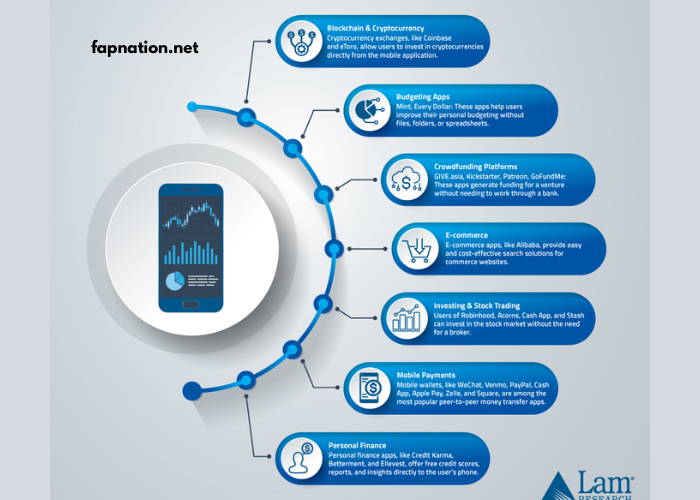In today’s fast-paced world, maintaining a balanced lifestyle can seem like an impossible task—especially for busy professionals juggling demanding careers, family obligations, social commitments, and personal goals. However, achieving a balanced life is not only possible, but it is also crucial for long-term success and well-being. In this article, we will explore practical tips and strategies that can help professionals manage their time and energy more effectively, leading to improved productivity, reduced stress, and enhanced overall happiness.
Why a Balanced Lifestyle Matters for Busy Professionals
Before diving into the tips, it’s important to understand why a balanced lifestyle is vital for busy professionals. A balanced life goes beyond just managing time—it involves prioritizing physical health, mental well-being, and personal fulfillment. When you create balance in your life, you’ll be more focused, energized, and motivated, which directly impacts your work performance and personal happiness.
A well-balanced lifestyle allows you to avoid burnout, increase job satisfaction, build stronger relationships, and maintain a sense of control. Furthermore, it helps in boosting creativity and problem-solving skills, making it easier to handle professional challenges. In essence, balancing work and life isn’t a luxury but a necessity for achieving sustained success in both professional and personal realms.
Setting Clear Priorities: The Foundation of Balance
One of the first steps in creating a balanced lifestyle is setting clear priorities. Without knowing what’s most important to you, it’s difficult to make decisions that will lead to a fulfilling life. This involves identifying your professional and personal goals and ranking them in order of importance.
Identify Your Non-Negotiables
Start by recognizing what aspects of your life are non-negotiable. These might include family time, health, or personal hobbies. For example, if exercising is essential to your physical and mental well-being, schedule it into your calendar just like you would an important work meeting. When you prioritize your non-negotiables, you’ll be more likely to stay committed to these activities, even when work gets hectic.
Align Your Professional Goals with Personal Values
Next, examine how your professional goals align with your personal values. For instance, if you value creativity and flexibility, ensure that your career path reflects these values, whether through job choices or by negotiating for more autonomy in your current role. Aligning both aspects of your life will make it easier to stay motivated and fulfilled while reducing internal conflict between your career and personal life.
Time Management: Mastering the Art of Balance
Time management is arguably one of the most critical skills for busy professionals who want to lead a balanced lifestyle. By using time effectively, you can create more space for the things that matter most. Below are some proven strategies to help you manage your time and achieve a greater work-life balance.
Prioritize Tasks Using the Eisenhower Matrix
The Eisenhower Matrix is a time-management tool that helps you categorize tasks based on urgency and importance. This approach divides your tasks into four quadrants:
- Urgent and Important: Tasks that must be done immediately.
- Important but Not Urgent: Tasks that are important but can be scheduled for later.
- Urgent but Not Important: Tasks that require immediate attention but are not crucial.
- Not Urgent and Not Important: Tasks that can be delegated or eliminated.
By focusing on the important tasks and delegating or eliminating less critical ones, you can ensure that your time is spent on activities that truly contribute to your goals and well-being.
Utilize Time Blocking for Maximum Focus
Time blocking is another effective time-management technique. This method involves scheduling specific blocks of time for different tasks throughout your day. For example, you might block out the first two hours of your day for deep work, followed by a one-hour lunch break, then another block for meetings and emails. The key to time blocking is to minimize distractions and focus on one task at a time, helping you achieve greater productivity without feeling overwhelmed.
Learn to Say No
As a busy professional, you may feel the pressure to accept every meeting invitation or volunteer for every project. However, saying “yes” to everything can quickly lead to burnout and a lack of balance. Learn to say no when necessary, and recognize that your time and energy are limited resources. Be selective about the opportunities and commitments you take on to maintain your balance.
Cultivating a Healthy Mind and Body
Maintaining a balanced lifestyle is not just about managing time—it’s also about taking care of your physical and mental health. Busy professionals often neglect self-care, but neglecting your well-being can lead to chronic stress, fatigue, and decreased productivity.
Prioritize Physical Health
Physical health plays a critical role in your ability to perform well in both your career and personal life. Regular exercise, healthy eating, and adequate sleep are essential components of a balanced lifestyle. These habits not only improve your energy levels but also boost your mood and cognitive function.
- Exercise: Find an exercise routine that works for you, whether it’s a morning jog, yoga, or strength training. Even small amounts of physical activity each day can significantly improve your overall health and stress levels.
- Nutrition: Eating a balanced diet rich in fruits, vegetables, and whole grains helps support both your physical and mental health. Avoid relying on processed foods or caffeine to boost energy, as they can lead to crashes later on.
- Sleep: Sleep is often overlooked but is essential for maintaining focus and productivity. Aim for 7-9 hours of quality sleep each night to ensure you wake up feeling rested and ready to take on the day.
Practice Mental Wellness
Mental wellness is just as important as physical health, especially for professionals who face constant work-related stress. Incorporating mindfulness practices into your routine can help manage stress and improve emotional well-being.
- Meditation: Meditation can help calm your mind and reduce anxiety. Even just 10 minutes of meditation in the morning can set a positive tone for your day.
- Mindfulness: Practicing mindfulness throughout your day helps you stay present and focused. Try taking short breaks during work to practice deep breathing or do a quick body scan to relieve tension.
- Social Connections: Maintain meaningful relationships with family, friends, and colleagues. Social support plays a vital role in mental health and can help you navigate the challenges of balancing work and life.
Setting Boundaries: Protecting Your Personal Time
For busy professionals, setting boundaries is essential to achieving a balanced lifestyle. Work can easily bleed into personal time, leading to stress and burnout. It’s important to set clear boundaries around your work hours and personal time to protect your well-being.
Define Work Hours and Stick to Them
One of the easiest ways to create balance is by defining your work hours and sticking to them. For example, set a rule that you’ll stop working by 6:00 PM and refrain from checking emails after that time. This creates a clear distinction between work and personal life, allowing you to unwind and recharge.
Disconnect from Technology
Constant connectivity can be a significant source of stress for busy professionals. When you’re always accessible via email, phone, or social media, it’s hard to disconnect and relax. Set specific times during the day to disconnect from technology, such as during meals, family time, or before bed. This helps you stay present and engaged in the moment rather than being distracted by work or digital devices.
Delegate Tasks at Work and Home
Delegation is another key strategy for achieving balance. At work, delegate tasks to team members or colleagues when possible. At home, share responsibilities with family members or hire outside help for tasks like cleaning or childcare. This reduces your overall workload and frees up time for yourself.
Embracing Flexibility: Adapting to Change
Life is unpredictable, and as a busy professional, it’s important to be flexible. Unexpected events—whether they are work-related or personal—can disrupt your schedule and throw off your balance. Embracing flexibility allows you to adapt to changes without feeling overwhelmed or stressed.
Adjust Your Priorities When Necessary
Sometimes, work or personal commitments may require you to adjust your priorities. If an urgent project comes up at work, it might mean rescheduling your personal plans. However, this doesn’t mean neglecting your health or relationships entirely. Be flexible in how you approach your schedule and re-prioritize when needed.
Learn to Manage Stress Effectively
Stress is inevitable, but learning how to manage it can help you maintain balance. Develop healthy coping mechanisms such as deep breathing, journaling, or taking short breaks throughout the day. Managing stress effectively allows you to stay grounded even during challenging times.
Conclusion: The Path to a Balanced Life
Creating a balanced lifestyle as a busy professional is a continuous journey that requires intentional effort and commitment. By setting clear priorities, managing your time effectively, prioritizing your health and well-being, setting boundaries, and embracing flexibility, you can achieve a lifestyle that supports both your career and personal life.
Remember, balance is not a one-time achievement but an ongoing process. Regularly reassess your priorities and make adjustments as needed to ensure that you are living a life that is fulfilling, productive, and sustainable. By focusing on what truly matters, you can create a balanced lifestyle that helps you thrive both professionally and personally.
By incorporating these tips into your daily routine, you will find that achieving balance is not only possible, but also immensely rewarding.



